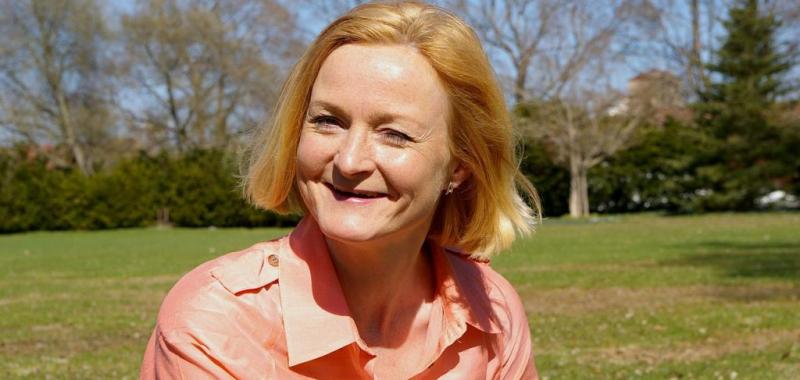WEDNESDAY, Jan. 10, 2018 — A year of hormone therapy cut the risk of depression symptoms in women going through menopause and early postmenopause, new research shows.
“Thirty-two percent of women randomized to treatment with a placebo experienced clinically significant depressive symptoms. But for women randomized to hormone therapy, the risk was cut nearly in half, to 17 percent,” said co-principal investigator Susan Girdler. She’s a professor of psychiatry at the University of North Carolina at Chapel Hill.
Girdler added there were two main factors that predicted whether or not women would experience fewer depression symptoms while on hormone therapy. One factor was being in perimenopause, or the transition to menopause, and the other was experiencing significant life stress, such as losing a loved one or divorce.
Surprisingly, for women with a past history of major depression — which is a known risk factor for future depression — hormone therapy didn’t appear to lessen the risk of depressive symptoms.
Girdler said normally women going through menopause have a twofold to fourfold higher risk of depression symptoms. There are a number of theories as to why that is, including recent life stress and the idea that some women may be more vulnerable to wildly fluctuating hormones, she explained.
To see if hormone therapy might have an effect on the risk of depression, the researchers recruited 172 women between the ages of 45 and 60. All of the women were either perimenopausal or recently postmenopausal at the start of the study.
Half of the women were aged 51 or older. Seventy-six percent of the women were white, and 19 percent were black. The mean household income was between $50,000 and $80,000.
The women were randomly selected to one of two groups. One group was given an inactive placebo patch to wear. The other group received skin patches that delivered 0.1 milligrams per day of estrogen.
Every three months, women in the estrogen patch group were also given 12 days of the hormone progesterone to ensure that women who still had a uterus shed their uterine lining, or endometrium, which helped to offset a potential increase in the risk of endometrial cancer related to estrogen therapy. Hormone therapy was given for a year.
The researchers also asked the women to complete a depression symptom questionnaire. However, they didn’t diagnose any of the women with depression, just “clinically significant depressive symptoms.”
Girdler said that significant fluctuations in hormone variability, as well as stressful life events, can destabilize the cortisol stress axis.
Cortisol is a stress hormone that “helps mobilize the body to respond to stress and to release energy stores so we can prepare for the ‘fight-or-flight’ response. This worked beautifully in cave people, but the problem is we still respond to stress as if there’s a tiger coming after us, but instead we’re just sitting at a computer,” she explained.
Dr. Hadine Joffe, executive director of the Connors Center for Women’s Health and Gender Biology at Brigham and Women’s Hospital in Boston, co-authored an editorial accompanying the new study. Joffe said factors such as hot flashes and sleep disturbances may also play a role in the increased risk of depressive symptoms.
“Those factors can be intervened with nondrug therapies, such as cognitive behavioral therapy,” Joffe said. And, if you can improve sleep by reducing hot flashes and chronic insomnia, you may also reduce depressive symptoms.
If you can use a nondrug therapy, that’s preferred if it helps, Joffe said.
The average time for the menopausal transition is about four years, according to Joffe. Girdler said it’s not clear how long women would need to take hormone therapy, but she doesn’t envision it would be needed for the entire transition time, particularly because the study found that hormones were most beneficial in women early in the menopause transition.
Joffe and obstetrician/gynecologist Dr. Jill Rabin, from Northwell Health in New Hyde Park, N.Y., said the advice for premenopausal women remains the same. Recently, the nation’s leading authority on preventive medicine, the U.S. Preventive Services Task Force, stood firm and said only postmenopausal women should avoid hormone replacement therapy.
“When the benefits of hormone therapy outweigh the risks, women should be on the lowest dose for the shortest time,” Rabin said of women going through the early stages of menopause.
Rabin noted that women in the study did have irregular bleeding, which was a bit concerning. Girdler added that one woman experienced a blood clot.
Rabin said the study raises some very interesting questions, but that it needs to be replicated in a larger, more diverse group of people. “This was a small, pretty homogenous study,” she pointed out.
Dr. Alan Manevitz, a clinical psychiatrist from Lenox Hill Hospital in New York City, agreed that the study finding raises questions and needs to be duplicated.
None of the experts recommended asking your doctor for hormone therapy to prevent depression, but Manevitz urged women going through menopause who are experiencing depressive symptoms to get a depression assessment.
The study was published online Jan. 10 in the journal JAMA Psychiatry.
For more on hormone replacement therapy, visit the North American Menopause Society.
This content was originally published here.







